A heartbroken wife whose husband died in her arms at Dignitas has revealed the awful moment he received an emailed detailing the date he would die.
Louise Shackleton is being investigated for taking terminally ill Anthony, 59, to Switzerland last December to assist his suicide, after he had suffered from motor neurone disease for six years.
Ms Shackleton, 58, said her world was ‘blown apart’ by the email – while he was so happy he marked the date on his calendar.
Now she is pleading with MPs as she believes that her husband died prematurely because of the law and would still be alive today – because he had to leave the UK while he could still physically travel.
She said: ‘Antony had anxiety before he got what they call the provisional green light from Dignitas. When he got the green light, he then started looking at how his body would come back.’
She continued: ‘Because he was deteriorating, he knew that I wouldn’t be able to help him soon, and he didn’t want anyone else to get in trouble.
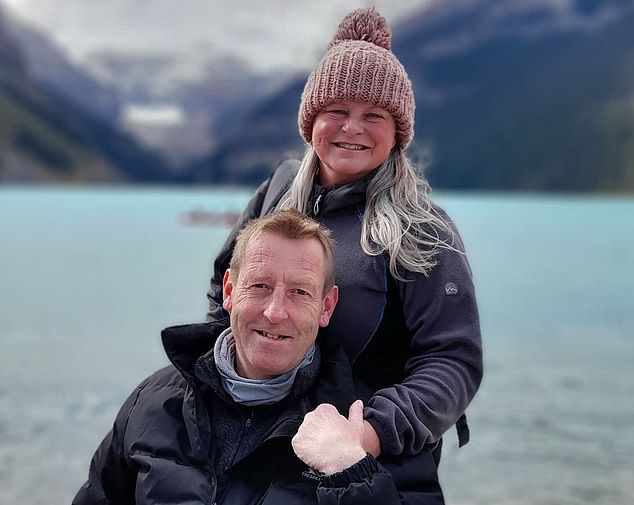
Louise Shackleton is being investigated for taking terminally ill Anthony, 59, to Switzerland last December to assist his suicide, after he had suffered from motor neurone disease for six years
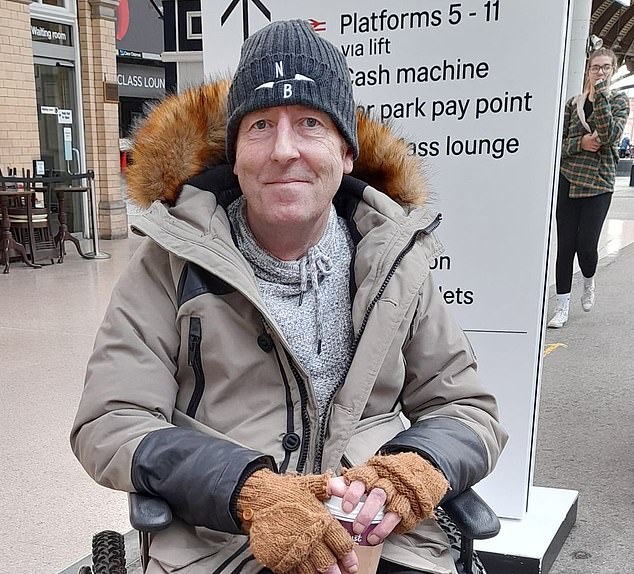
Ms Shackleton, 58, said her world was ‘blown apart’ by the email – while he was so happy he marked the date on his calendar
‘He was scared of his death from motor neurone but he wasn’t scared of his death day at Dignitas. In fact he was rejuvenated knowing that his end would be peaceful.’
Ms Shackleton described how she had to wait to call their three children and his 90-year-old parents after he died and even had to leave his husband’s memorial early to protect them from laws against assisted dying.
She described the awful moment she called her family for a familiar voice as she drove away from the Dignitas ‘blue’ house in an Uber.
She said they were ‘blindsided’ by the ‘horrifying’ news and he could not even say goodbye because they couldn’t let them know they were going.
Ms Shackleton said that the event was made all-the-more painful because had to die away from everyone he loved, and had to plan how he could speak to them for one final time.
She said they must have been suspicious to get a phonecall out-of-the-blue, but he rang all his friends the night before he left for Manchester Airport – with the exception of one he could not get hold of.
Ms Shackleton has previously described her husband’s final days, saying Mr Shackleton was given an ‘anti-sickness medication’ upon his arrival to Dignitas and was greeted by three ‘knowledgeable’ staff members who ‘explained everything that was going to happen’.
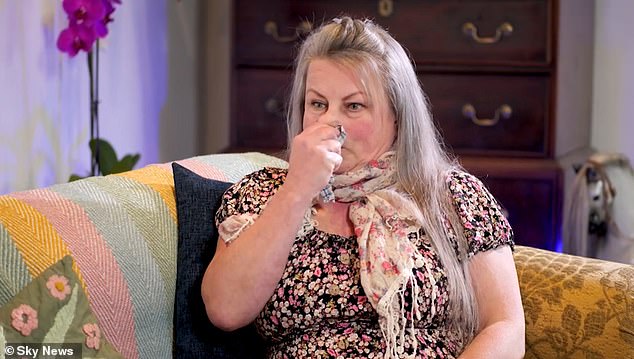
Now she is pleading with MPs as she believes that her husband died prematurely because of the law and would still be alive today – because he had to leave the UK while he could still physically travel
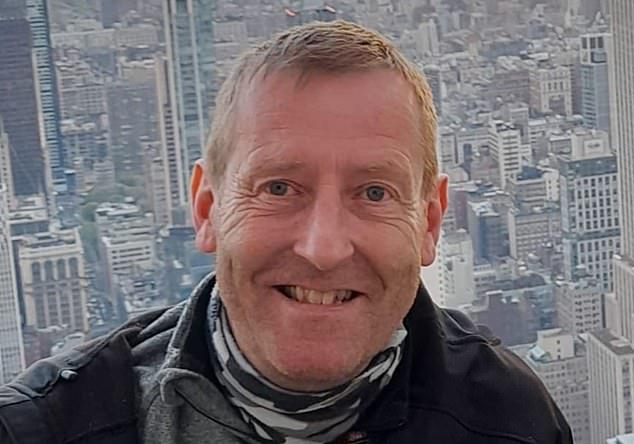
The Shackletons discussed assisted death from more than two years before deciding it was the only way Mr Shackleton could die without pain or suffering
After their walk, he was asked again if he wanted to go through with the process, which would see him take medication, fall asleep and never wake up. Ms Shackleton claims he smiled, laughed and replied: ‘What do you think I’m here for? Let’s do this!’
She laid next to her husband as administered his own end-of-life medication, admitting she ‘couldn’t look at him doing that’. She recalled how she held him in her arms and ‘within minutes he was becoming heavy’.
Mr Shackleton told his wife ‘I feel sleepy’ and let out a snore, prompting her to hold him tighter as she joked about his snoring. She says ‘he laughed and gently slipped away’ in what she described as a ‘beautiful death’.
The Shackletons discussed assisted death from more than two years before deciding it was the only way Mr Shackleton could die without pain or suffering.
It is illegal in the UK to assist someone’s suicide – but people are rarely prosecuted.
The assisted dying bill currently going through Parliament would allow someone with a terminal diagnosis and less than six months to live to end their life, with approval from two doctors and a panel of experts.
The next vote on it has been postponed for three weeks, to give MPs time to think about amendments to the bill.
Ms Shackleton, from North Yorkshire, has argued that if the laws had been different in Britain, the couple’s family would have been able to support them during his final moments.
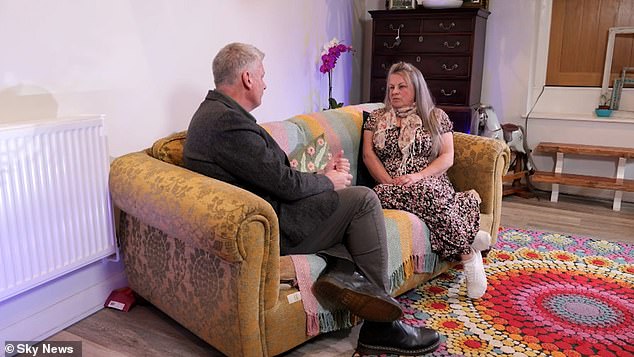
Ms Shackleton said that the event was made all-the-more painful because had to die away from everyone he loved, and had to plan how he could speak to them for one final time
She gave herself up to police after returning from Switzerland and said that although she ‘committed a crime’, she does not regrets going to Dignitas.
She told Sky News: ‘I have committed a crime, which I have admitted to, of assisting him by simply pushing him on to a plane and being with him, which I don’t regret for one moment. He was my husband and I loved him.’
The couple had been together for 25 years – and had known each other since they were both 18.
She said: ‘It was in those four days that I realised that he wanted the peaceful death more than he wanted to suffer and stay with me, which was hard, but that’s how resolute he was in having this peace.’
And if legislation had been different in the UK, she added, they could have also shared those final days with family.
Concerns have been raised that the assisted dying bill puts vulnerable people at risk, with fears they will feel coerced into making use of what the legislation would allow.
Critics of the bill have also said they worry that it will see attitudes towards the elderly, ill and disabled change – and that the focus should be on improving palliative care instead.
Ms Shackleton said people need to be safeguarded – but equally, their wishes need to be respected, even if others are not comfortable with them or do not agreed.
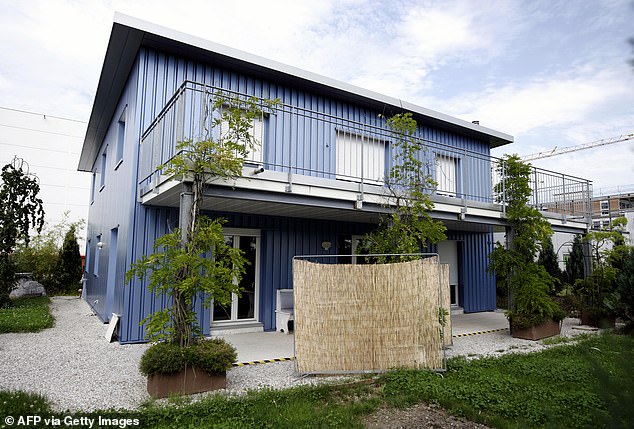
British membership of Dignitas has increased by more than 50 per cent over the last five years. Pictured is a file photo of the Dignitas clinic in Pfaeffikon, near Zurich
She recalled the kindness and generosity of her husband, a furniture restorer who had been recognised globally for his handmade rocking horses – and who no one ever had a bad word to say about.
She added that she chose to speak publicly because she did not want him to die in vain – and because he had made her promise, on his final day, to tell his story.
Ms Shackleton said: ‘This is about a dying person’s choice to either follow their journey through with disease or to die peacefully when they want to, on their terms, and have a good death. It’s that simple.’
British membership of Dignitas has increased by more than 50 per cent over the last five years, according to statistics from the Dignity in Dying campaign.
But chief executive Sarah Wootton warns that individuals who cannot afford the £15,000 costs associated with end-of-life care at the Swiss facility are often ‘eft to suffer as they die, or take matters into their own hands’.
She told the Mirror that the Shackletons’ story highlights how the UK’s ‘blanket ban’ on assisted suicide is ‘failing dying people and their loved ones’.
A spokesperson for North Yorkshire Police said: ‘The investigation is ongoing. There is nothing further to add at this stage.’







